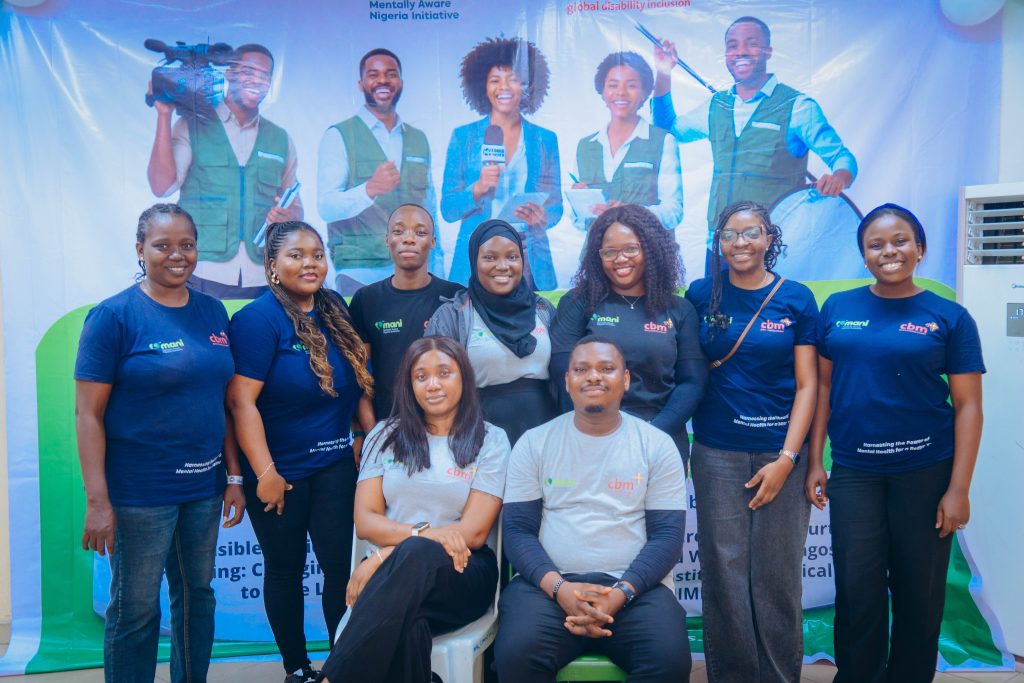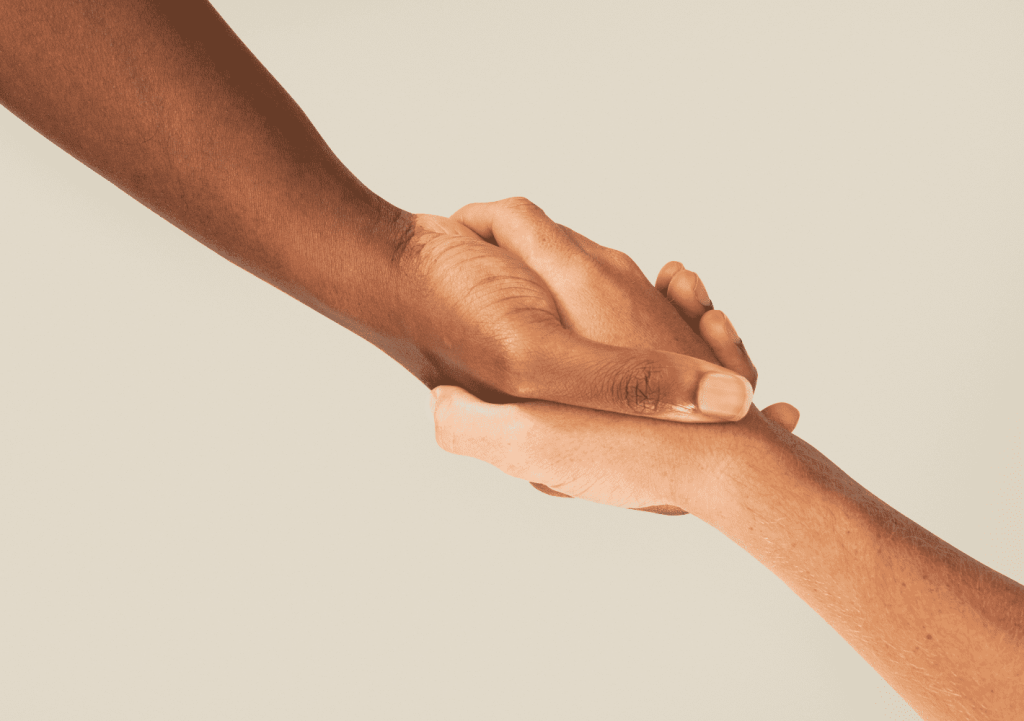
Mentally Aware Nigeria Initiative (MANI) is Nigeria’s largest youth-run and youth-focused mental health organisation. We are a community of young people who champion the fight against mental health-related stigma and create an environment that makes it possible for people to seek care for their mental health without fear of discrimination. MANI is also the largest provider of crisis support services in Nigeria, with direct support given to over 200,000 persons since setting up the service, 80% of whom are between the ages of 10 and 25.
Our vision is a world where young people in Nigeria can flourish because their mental health is valued by themselves and their community; have access to high quality rights based services as needed and are able to live to their full potential.
We are the only non-profit charitable organisation that focuses on mental health issues, for young people in Nigeria, who need accurate information and support in an era of increasing social difficulties.
Due to the sensitivity of our work, we pride ourselves in being responsive to requests coming in to the organisation as every second counts.
We believe in an inclusive workplace and society at large, every thought, idea or perspective matters and can be pivotal to achieving our goals as an organisation
We respect, listen to and appreciate our people
We are dedicated to making a difference in the mental health space in Nigeria
MANI is proud to be the largest youth Mental Health network in West Africa with active youth volunteers across all 36 states in Nigeria. MANI is also the largest provider of crisis support services in Nigeria, with direct support given to over 200,000 persons (>80% between the ages of 10 and 25) in 9 years of setting up the service. MANI was recognised by The Elders as one of their 100 ‘Sparks of hope’ across the world and received a Nelson Mandela-Graca Machel Innovation Award in 2017, in the best civil society organization category. MANI is proud of the difference it makes, as exemplified by the kind of testimonial we get from our service users: “MANI played a huge role in my survival,” “I had someone to talk to when I was isolated,” “We got talking and I felt so much better.”
Offline, MANI runs conversation cafes across states in Nigeria, educating more than a thousand young people every month on mental health and mental health conditions; and have trained employees and students, parents and teachers.
Online, MANI carries out sustained efforts to improve the Mental Health literacy levels of millions of people through their active social media pages – with a combined huge following across X (formerly Twitter), Facebook and Instagram and with a reach, for example, of over 350 million, all done using very innovative ways to get people involved in conversations, learn and receive support as needed.
In 2025, the evidence of our work lead to MANI been selected as one of the recipients of TikTok’s Mental Health Education Fund, rolled out during their first-ever Digital Well-Being Summit in Johannesburg, South Africa. This fund will be used to create intensive awareness on social media and fight the stigma online
MANI has also supported the COVID-19 Mental Health Response In Nigeria
In 2020, we launched our response to the Covid-19 pandemic, with a number of projects designed to provide support for the mental health of Nigerians as we looked to cope with the outbreak.
Acknowledging the increasing mental health difficulties that came with the outbreak, evidenced by a >70% increase in people seeking support from our crisis services, we increased our capacity to provide support by training more than 200 counselors to add to our 300 strong team of volunteer counselors. We also added 2 extra phone numbers to our emergency call centre, with a provision to call back anyone that reaches out to the number who couldn’t afford to stay on the line for as long as needed (there’s no toll free suicide hotline in Nigeria).
We are now looking to scale the impact and reach of our work to ensure meaningful change in the mental health space in Nigeria and below are some of the processes we are looking to take on for the coming years.

We are now looking to scale the impact and reach of our work to ensure meaningful change in the mental health space in Nigeria and below are some of the processes we are looking to take on for the coming years.
Nigeria has finally passed a new Mental Health Act, replacing the outdated Lunacy Act of 1958. This marks a major step forward for mental health advocacy in the country. The new law aligns with the United Nations Convention on the Rights of Persons with Disabilities and promotes a rights-based approach to mental health care—ensuring that people living with mental health conditions are treated with dignity, respect, and access to quality care.
one of the key discussions at the last UN General Assembly was UHC and for the health system in Nigeria to improve, it is an absolute necessity to see this through. However, UHC conversations in Nigeria largely exempt Mental Health and we are hoping to get into these discussions to make a case for its inclusion. One of the practical ways in which MH can be integrated into UHC and the resources being allocated is by its integration into Primary Health care using a stepped care model approach where early intervention is offered to as many as need it in PHCs and much more serious cases are referred to secondary and tertiary centres of care as appropriate. This would mean keying into the WHO’s model of capacity scaling of non-specialized health care workers and non-health care workers to offer mental health care using the WHO MHGAP curriculum; making mental health services much more readily accessible and available to the average Nigerian.
Nigeria is still one of about 30 countries who still operate an archaic law dating back to pre-colonial times that jails anyone that attempts suicide. This has long been proven to be the wrong approach to supporting anyone trying to take their lives and we need support to push for a review of this law. As well as changing this law, we are keen to support the Ministry of Health in developing a national suicide prevention strategy which offers a much more holistic and tested approach to suicide prevention with setup of national and state toll free crisis support platforms, but going beyond that to more structural reforms that reduce suicide incidence, with emphasis given to support for survivors of suicide attempts.
Nigeria’s National Mental Health Policy, developed by the Ministry of Health in 2013, laid an important foundation—but true progress requires more than policy. Implementation plans with clear timelines, measurable objectives, and dedicated funding are essential to turn these commitments into real impact.
While the passage of the Mental Health Act marks a major milestone, suicide unfortunately remains criminalised in Nigeria. We continue to advocate for its decriminalisation, recognising that suicide is a public health issue—not a crime. Our goal is to work with policymakers, mental health professionals, and civil society to push for legal reforms that align with global best practices and promote a compassionate, rights-based response to mental health challenges.
At the moment, Nigeria is said to spend less than 3% of the total health budget on mental health. But what isn’t so clear is that a large chunk of that budget is spent on core processes for psychiatric facilities across the country, and none is spent on promotion and prevention programmes meant to increase mental health awareness and prevent early onset psychosocial problems. We are hoping to make the case for return on investment for mental health and the importance of separating a budget line in the health budget not just for core processes but for prevention, promotion and research.
for a long time now, the conversation on drugs in Nigeria has been on the rise, with little or no action in the short or long term seen. We are prepared to support relevant agencies in the development of evidence based approaches to ending the scourge of substance use, dependency and abuse in Nigeria.
there’s little or no local data/evidence for mental health prevalence and incidence in Nigeria and without data, we are left in the blind as to the scale of the mental health crisis in Nigeria. We are hoping for practical investments in implementation research, funded by the government to understand the various ways we can improve mental health care in Nigeria using local assessment of needs and guiding proper investment in the sector. To that end, we are working with a polling institute as well as a university to create the first national collaborating center for mental health research which will focus on gathering operational data that’s relevant to pushing for better policies and ensure that we are getting answers to questions that are relevant to our context.
Just N5,000 could help pay for a call to our advice and information line, supporting someone living with mental illness who may be feeling in distress during this time.

Join our community of over 5000 subscribers who enjoy positive notes from us on weekdays.
“Ruminations@5 from @MentallyAwareNG keeps me going…”
-Henry